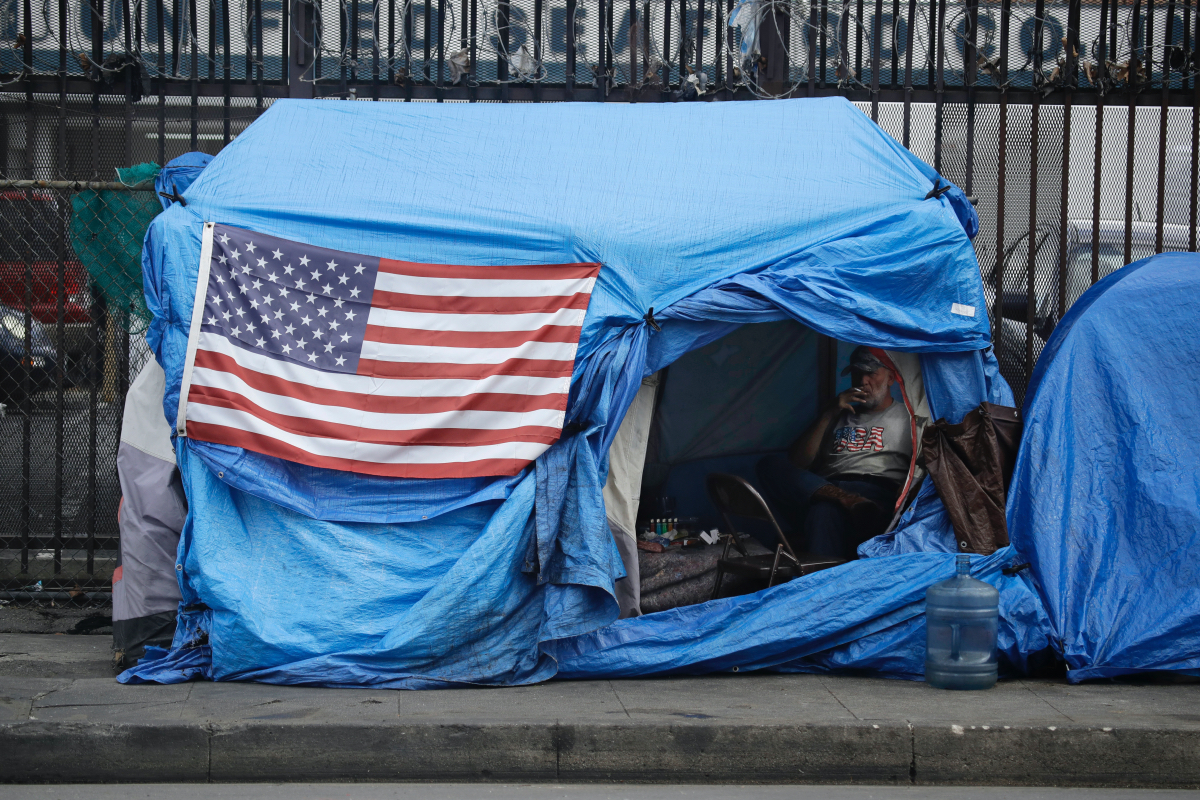

In this March 20, 2020, file photos, a man smokes inside a tent on skid row in Los Angeles. (AP Photo/Marcio Jose Sanchez)
By Rick Garcia
The people of Los Angeles have a serious problem. The COVID-19 pandemic and the rampant growth of the homeless population have further destabilized the economic and social situations, reinforcing barriers deeper into a system that is set to separate families and more.
No one should experience homelessness, but the pandemic has made it more common. Parents, veterans, seniors and even children are in danger of being homeless, which in turn increases their risk of contracting COVID-19 during these terrible times. Those that have COVID-19, doing their best to self-isolate, are now under siege by landlords and banks threatening to kick them out of their homes and into the streets. In this critical time, safe spaces for quarantine are crucial.
According to a 2019 study, the number of Latinx experiencing homelessness in Los Angeles has skyrocketed. Latinx make up approximately 23 percent of the nation’s homeless population, and it will likely further increase due to language barries, the unavailibility of shelters and other homeless services, and immigration status.
Back in March 2020, at the begininng of the shutdown, Mayor Eric Garcetti proposed a $385 million initiative called Project Roomkey, which allows cities across California to rent hotel rooms to house their homeless populations. Before the epidemic, Garcetti’s Proposition HHH and Tiny Homes, a $1.2 billion project proposed in 2016, served as a strategy to combat homelessness. Project Roomkey will end this month, and there seems to be no discussion of an extension or reevaluation.
Those that are currently feeling the immense pressure of homelessness are at high risk of contracting COVID-19 and other infections from outside exposure. Living outside in the streets, battling the elements and struggling to survive places the homeless, especially Latinx migrants, in severe danger.
With homeless services in high demand, those individuals with COVID-19 are further excluded from such programs. Now that the eviction moratorium has ended as of September 30, the question is now: How are the communities going to pay months of back rent? Shy of cancelling rent, communities are left footing the massive bill.
Time will tell if Garcetti’s programs will actually live up to expectations, nearly two years into the pandemic. But many Angelenos like myself believe these programs are not enough. We cannot forget our vulnerable population or those who have been abandoned by the system. Sustainable pressure from communities will help expedite the process and get communities the help they need.
***


